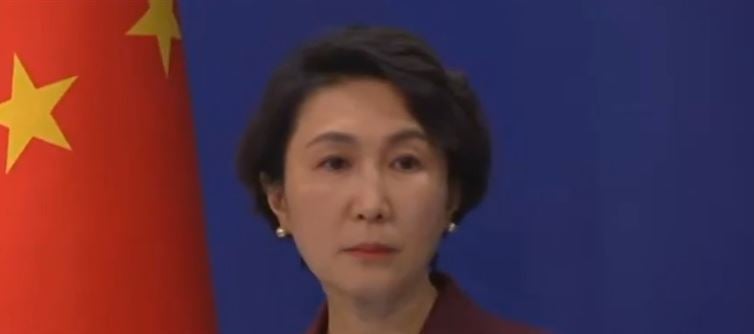
🔥WHEN china SPOKE, IT ECHOED. WHEN india REACTED, IT WHISPERED.
On a global stage, China’s Foreign Ministry didn’t stutter, didn’t soften, didn’t hide behind diplomatic ambiguity.
They said it straight:
“Zangnan is China’s territory. Arunachal Pradesh was illegally set up by India.”
A direct, on-camera challenge to India’s sovereignty — broadcast to the world.
And India’s response?
A routine press note.
A template statement.
A whisper in a geopolitical hurricane.
Where was the sharp rebuttal?
Where was the leadership’s voice?
Where was the firmness india needed in that moment?
When china escalated, india evaporated.
⚡ 1. The Claim Heard Across the Border: China’s Bold Assertion
Chinese Foreign Ministry spokesperson Mao Ning made the declaration without hesitation, without fear of international backlash, and without caring about diplomatic courtesy.
This wasn’t a misquote.
This wasn’t a leak.
This wasn’t an unnamed source.
It was official, on-camera, and intentional.
The message was unmistakable:
“Arunachal Pradesh is not India’s. It is China’s.”
beijing chose confrontation.
Beijing chose provocation.
Beijing chose escalation.
⚡ 2. MEA Responds — But With Paper, Not Power
India’s Ministry of External Affairs released a standard statement.
Correct, official, measured — but emotionally and strategically hollow.
This was not the moment for bureaucracy.
This was the moment for assertive leadership, strong messaging, and global signaling.
Instead, india delivered a polite PDF.
A technical reply to a political punch.
⚡ 3. Where Is the Voice That Speaks on Everything Else?
The External Affairs minister is known for his frequent public commentary — from global events to sports, leadership doctrines to cultural analogies.
But on this?
On a direct assault on India’s sovereignty?
On a public insult broadcast by China?
Silence.
Total silence.
This isn’t diplomacy.
This is a strategic absence.
And absence has consequences.
⚡ 4. china Understands Power Optics — india Must Too
china didn’t just make a claim.
China made a statement of dominance.
On international stages, optics matter:
Whoever speaks first shapes the narrative.
Whoever speaks louder shapes the perception.
Whoever speaks confidently shapes global opinion.
china did all three.
India did none.
This is how geopolitical myths are born — and territories get psychologically contested long before militarily contested.
⚡ 5. The World Was Watching — And india Blinked
Diplomacy is not just quiet negotiation.
It is public posture, national confidence, and perceived strength.
When china makes a territorial claim this bold:
india is expected to respond with equal force.
Leadership is expected to stand firm.
Ministers are expected to speak.
The world is expected to hear India’s voice.
But instead, the world saw hesitation.
And hesitation looks like weakness — even if it isn’t.
⚡ 6. india Deserves Leaders Who Stand Up, Not Step Back
Indians are not asking for shouting matches.
They’re asking for clarity, strength, and unwavering presence.
They want a response that says:
india will not be provoked.
india will not be intimidated.
india will not allow its territory to be debated publicly by a hostile neighbor.
They want representation that reflects the nation’s spine — not just its signature on a press release.
⚡ 7. china Is Testing Lines. india Must Not Stay Behind the Curtain.
This was not a mere remark.
This was a tactical test.
When beijing pushes boundaries — literal or rhetorical — it observes:
Does india roar?
Or does india retreat?
Silence is not diplomacy.
Silence is an answer.
And the answer china heard wasn’t the one india should be giving.




 click and follow Indiaherald WhatsApp channel
click and follow Indiaherald WhatsApp channel